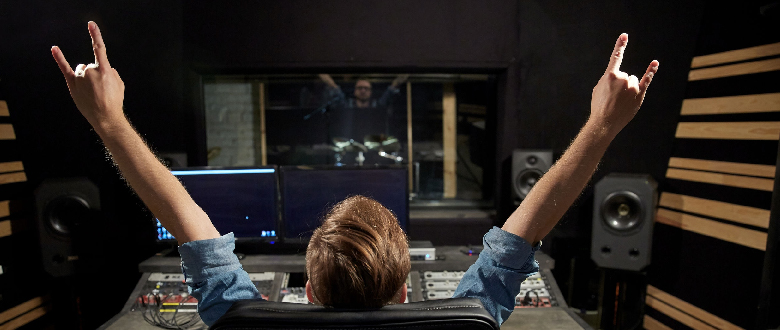Content Is King and the most engaging content, the most entertaining content commands the highest prices.
Jimmy Kimmel Live! is not broadcast live. It is recorded at 4pm Pacific time. It is highly produced in advance of the recording session to look like a live spontaneous show.
One of the shows producers will contact the guest a few weeks before the broadcast date and ask the guest what topics they would like to discuss in their segment. The producer reviews the list of topics with Kimmel. Then calls the guest back with Kimmel’s list of questions so they can prepare.
In many cases, the first time the guest meets Kimmel in person is a few minutes before the recording begins, just to make sure they are still on the same page.
This highly orchestrated procedure creates what appears to the audience as a spontaneous, unscripted conversation. The guest is relaxed because they had time to prepare, and maybe even come up with some witty answers. Kimmel is happy because his team has the most entertaining content in Kimmel’s time slot. And that’s why he gets paid the big bucks.
The success of Jimmy Kimmel Live! would not be possible without show prep and modern recording technology, the very same tools that some disgruntled programmers say is ruining Radio.
In his book Good To Great, author Jim Collins identifies the key factors that help a good company become a great company. One of those key factors was the willingness to embrace “technology accelerators.”
They key word here is embrace. The dictionary defines embrace this way; accept or support (a belief, theory, or change) willingly and enthusiastically.
As I write, I am reminded of the first time I met Chris Stryker, an enthusiastic young man, excited about his new Radio job in a new market. What made this encounter stand out was Chris’ positive attitude following a recent downsizing in his market. His market had been downsized to just him. It was Chris and five Radio stations.
Downsizing was common at the time and most of the surviving staff in many markets had a pretty dim outlook about the future of Radio. But not Chris.
Chris was able to put all of the station computers in one room with a swivel chair that allowed him to move from one station to the next as he produced the programming.
The stations were carrying a lot of satellite programming so the first thing Chris did was contact all of the syndicators and requested localized content from the shows. He carefully produced each show with the localized content to make it seamless, even asking for do overs if it didn’t fit just right.
I listened to Chris’ stations and it was the best local integration I have ever heard.
Chris even went so far as to get the hosts of the shows to record contests, “We’ll take the 10th caller” kind of stuff. He really did that the 10th caller for the winner!
Did you catch how I used the word produce as I described Chris’ actions? He wasn’t a DJ, or an announcer, he was a producer of content. He was “producing” his shows, just like they do in Hollywood and New York City and it was more entertaining and more engaging, than the other guys across town with an air staff.
It isn’t voice tracking software that is hurting Radio, it is the attitude about using voicing tracking software. Jimmy Kimmel doesn’t complain that video tape prevents him from being spontaneous in his show, Kimmel welcomes the technology because he recognizes it gives him a competitive advantage. He knows his success depends on using the technology to produce the most entertaining content possible.
We need to think like the professionals do. It takes a lot of preparation to sound natural and unscripted. “Four and out the door” won’t cut it in today’s competitive environment of podcasts and other audio entertainment.
With smartphone recording quality, we have a recording studio in our hands at all time, we can create content anytime we want. We may never use most of it but the content we do use will give your show more entertainment value that just announcing the songs we are playing.
The role of programmers in the future will not be as DJs or announcers, it will be as content producers. We will still be doing DJ and announcer tasks, but the future belongs to the Radio producer, the person who can see the big picture that the entertainment value of the show is the sum total of all of the programming elements. We must be aware of the science of psychology to create engaging content. We have a lot going for us already.
Radio listening is a one-on-one and emotions-driven experience, and listeners believe that both the medium and its advertising are more relevant to them (compared to television and newspapers). Consumers see television and newspapers as being designed to satisfy the masses, but radio is where they turn to get gratification of their personal wants and needs.
To be a professional and produce emotionally engaging and entertaining content, we must take a page from the professional’s playbook. Ripping and reading is not show prep. The computer is not a creativity killer. Show prep takes hours, not minutes. The computer helps you maximize your creative resources and helps you create, correction, produce a better product.
One of my favorite Zig Ziglar quotes goes like this; It is your attitude and NOT your aptitude that determines your ALTITUDE!
In all my years, I don’t think I have ever heard anyone complain about voice tracking when the holidays or three-day weekends came around.
Talk to you soon.






